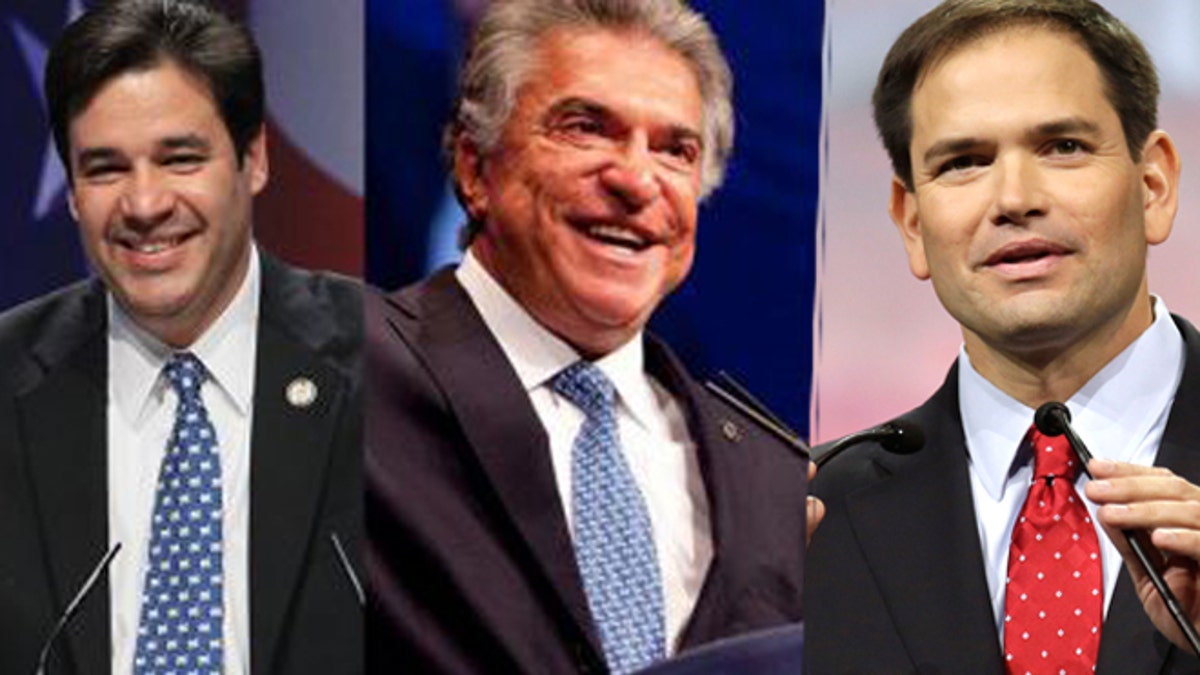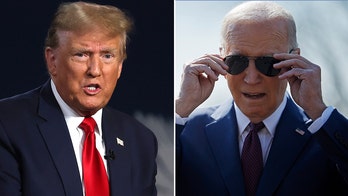
A Latino, Rep. Raul Labrador, one of only two Republicans running to be the next House majority leader, is the Tea Party alternative to the so-called establishment GOP candidate.
A Latino – Ted Cruz of Texas – is considered one of the most firebrand conservatives in the U.S. Senate, and even all of Congress.
And a Latino, Al Cardenas, is head of the American Conservative Union (ACU), one of the nation’s most influential conservative political organizations and the oldest such lobbying group in the United States.
They are just three of a growing number of Latinos moving into leadership roles – the role of mover and shaker – in not just the Republican party, but in its most conservative faction.
Sometimes the GOP establishment sees and deals with Hispanics as just a constituency. It’s what I call piñata politics. To get Hispanics, it has to be an idea-driven effort, not just celebrating culture, or Cinco de Mayo.
“Before, it used to be that Hispanics were just operatives in the Republican party, helping candidates organize Hispanics events,” said Alfonso Aguilar, the executive director of the Latino Partnership for Conservative Principles and former chief of the U.S. Office of Citizenship in the George W. Bush administration. “Now we are not just operatives, we are ideologues and leaders in the conservative movement.”
It is yet another chapter, experts say, in the constantly evolving story of Latinos and their involvement in politics, where they do not march in lockstep, where they defy categorization.
“Latino in American politics reflect the widespread diversity of opinions [in the Latino community],” said Whit Ayers, a Republican pollster, “they span the spectrum from left to right and everything in between.”
This is a group, after all, that gave George W. Bush more than 40 percent of the vote in 2004, New Jersey Gov. Chris Christie, a Republican, more than 50 percent of the vote (over his Democratic challenger, despite her running mate – a Latina), and President Barack Obama about 70 percent in 2012.
“Latinos are up for grabs,” Ayers said. “They are not settled in their voting behavior like African Americans have – 90 percent vote for Democrats.”
On Thursday, the Republicans in the House will vote on their next majority leader.
Labrador is popular with the conservative faction of the GOP in the House, and is viewed as the Tea Party alterative to Kevin McCarthy, who is from California.
GOP members will vote, via secret ballot, on Thursday. The victor will succeed Eric Cantor, who lost the Virginia primary last week to a Tea Party insurgent.
If elected, Labrador, 46, would be the first Hispanic majority leader.
The command of Latinos in the conservative spotlight, Ayers noted, is a natural extension of their many years in lower levels of politics, and their coming of age, so to speak.
Florida Latinos, for instance, have held positions of clout in the Republican and conservative arenas for some time, even though they may not have been household names.
U.S. Sen. Mel Martinez was head of the Republican National Committee, and Alex Castellanos, a political consultant, had major roles in the campaigns of such GOP candidates as Bob Dole, George W. Bush, Jeb Bush and Mitt Romney, among others.
“Latino politicians have matured,” Ayers said. “They’ve gotten enough experience in lower levels of government. Marco Rubio was in his 30’s, a young man, when he became speaker of the Florida House. By the time he was still relatively young, he could run with vast experience for the U.S. Senate.”
“They have that level of experience now that allows them to ascend higher and higher,” Ayers added.
The political world, too, has changed, experts say, to accept and support Latinos in leadership and leadership-track positions.
“They’ve evolved,” Ayers said.
The country in general, Aguilar said, is more open.
Aguilar argues that the conservative base – viewed by many as less accepting of minorities – actually is more authentically embracing of minorities as leaders than Beltway Democrats or Republicans.
“Sometimes the GOP establishment sees and deals with Hispanics as just a constituency,” Aguilar said. “It’s what I call piñata politics.”
“To get Hispanics, it has to be an idea-driven effort, not just celebrating culture, or Cinco de Mayo,” he said. “It can’t be just superficial.”
The new crop of headline-making Latino conservative leaders, Aguilar said, further broadens avenues for attracting yet more Latinos to the more right-wing group of the Republican party.
“We have Marco Rubio and Ted Cruz defending conservative principles,” he said. “We have very good leadership really penetrating the conservative movement. Seeing Hispanic faces will become more mainstream in the conservative movement.”
Look at Labrador, he said.
“Here’s a kid who came from Puerto Rico, representing Idaho, who might become majority leader of the House, with the support of conservatives,” Aguilar said.
Be that as it may, others say, the tone that many Republicans and conservative adopt when speaking about Latinos and other minorities, and addressing such topics as immigration, shows that not all doors are open to the community.
Many Democrats and others, for instance, said that while the Republican national convention in 2012 included many minority speakers on the stage, the audience was overwhelmingly white.
The rhetoric about immigration during the GOP primary in 2012, they said, was harsh.
"The presence of Latinos in the Tea Party and on the right more generally certainly reflects the fact that Latinos are not of a single mind on ideology or partisanship," said Louis Desipio, a political science professor at the University of California. "Even in years when national Democratic candidates do well in Presidential elections, a quarter of the Latino vote goes to the Republican candidate."
"That said, conservative or Tea Party Latinos seem have little influence over the rhetoric or policy agenda of the right," he said. "The exclusionary tone of Republican debates has continued, if not expanded, despite the presence of Republican Latino leaders."
Desipio noted that when Rubio supported comprehensive immigration reform -- including providing some undocumented immigrants with a path to legal status if they met various strict conditions -- many conservative groups denounced him.
The detractors, he said, questioned how committed to conservative values Rubio really was, especially when he joined a bipartisan Senate group in drafting a sweeping immigration reform bill that passed in the chamber last year, but stalled in the House.
"Until the Republican right learns to reach out to Latinos on issues that Latinos care about," Desipio said, "they will continue to earn low levels of support from Latino voters."
Tea Party leaders counter that liberals and Democrats have gone out of their way to portray all conservatives as racist and against Latinos.
“The Tea Party's success in nationalizing races and helping to elect ‘underdog’ candidates has changed the face of the GOP,” said Taylor Budowich, the executive director of the Tea Party Express. “The media-created perception of the Tea Party being racist or anti-immigrant has been baloney from the start.”
Budowich said that Latinos are not a single-issue monolith, and that many of them share conservative views on a vast array of matters.
“Unfortunately, the policies of the Democratic Party have created a sinister cycle of poverty through dependency and the American Dream has started to erode,” Budowich said. “So it should be no surprise that some of the biggest opponents of this liberal orthodoxy are individuals that come from the communities that are suffering the most.”
“Many of these Hispanic Tea Party-aligned legislators have run for office to protect the American Dream,” Budowich said, “so that the United States remains that beacon of hope that brought past generations to our country.”




